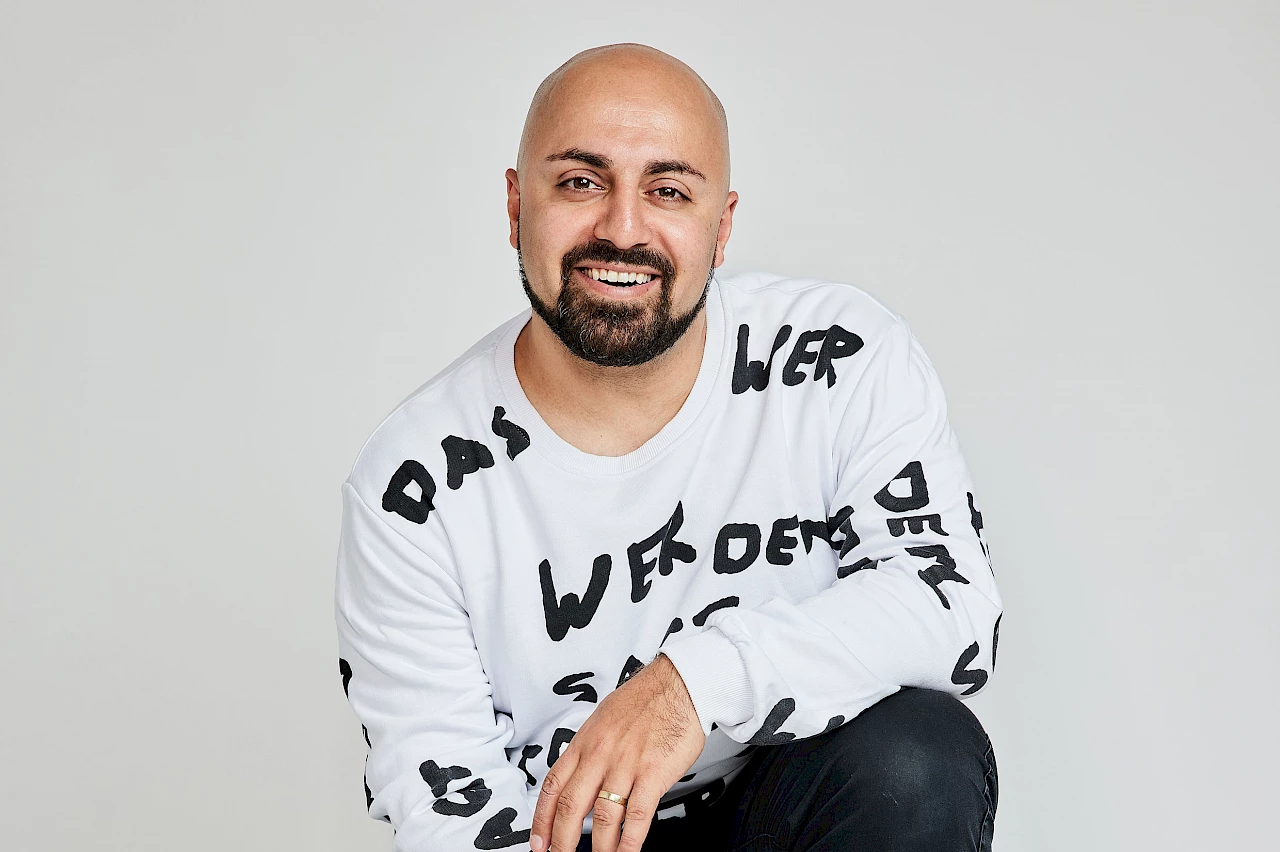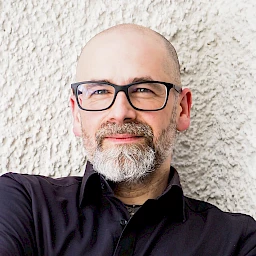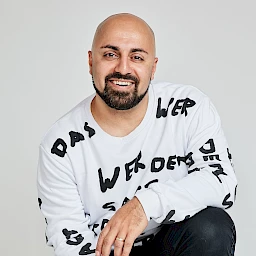What do football and corporate culture have in common? More than we think! Interview with Ali Mahlodji on playful corporate culture and the future role of offices.
In your “WORKREPORT” you advocate a playful corporate culture. What exactly do you consider playful and why is it so valuable for companies?
Playful corporate culture should be seen professionally. It’s like a football match, where the goal is to play a game and, in the best case, win it. It’s about having the best people in the game and, above all, empowering them to fulfil their potential. It is learning to stand on the sidelines as a leader, like a coach, and prepare your team so that everyone can play their own game during the 90 minutes. True potential realisation in the working world means developing employees to act autonomously. And by explaining purpose to them and involving them in the big picture, letting employees, initially through mistakes as well as by trial and error of course, become themselves being the best in their positions and find solutions, collaboratively like on a football field. In the working world, players are needed who know the rules and understand the game, who know their space for action, but also know the common big goal. Playfulness also means that sometimes, when it comes to new topics, for example, you play with an open mind. Playing for the sake of the game, so to speak. Especially when it comes to innovation, when it is about bringing different generations together, whenever it is about introducing new forms of work, the open-ended game makes sense.
Can you give an example?
Let’s take the office: a company wants to adapt its offices in the context of New Work. Of course, you have to look at 40 other offices and take a blueprint and say, that’s how we do it now, because that’s what we saw at that start-up there. The problem is that the start-up around the corner doesn’t have the same corporate culture. What works there may fail in other companies. What is needed here is a playful approach to find out the right setting for the particular company. And that’s the open-ended game in which we don’t know when we’ve won, but that’s not what it’s all about. It is more about finding a good deal, about saying, we experimented here and at the end of the experiment we found out what suits us and what does not. This playful approach is incredibly important, because since the pandemic at the latest, we need a playful approach in order not to end up in depression and despair.
What role will offices play in the future for you?
Especially with office space, you have to be aware that for some people the office is sometimes like a second home. For me, the office is a kind of flagship store. It’s a place where people can recharge, where they can exchange ideas and where they can get a feeling for corporate culture. Because there’s a problem with working at home: If you’ve been in the home office for a long time, you don’t even know what you’re missing. The office must manage to act like a magnet so that people like to visit it.
„De facto, New Work is the best mix of high effectiveness, efficiency and joy of life.“ Ali Mahlodji
In your opinion, how should workplaces be designed so that creativity and innovation can emerge?
Everyone has their own biorhythm. It doesn’t make sense to give different types of people the same job, at the same time, with the same demand for performance. To me, the new world of work means giving people within the organisation the opportunity to act independently and autonomously. This is the only way to achieve the best outputs in terms of creativity and innovation. This requires spaces where teams can come together to do their best work. Spaces that employees describe as providing them with the best possible support for their work intentions and the resources they need to do their job.
„We-cultures are always created through collaborative processes.“ Ali Mahlodji
Employees particularly value the exchange and collaboration with colleagues at the office. What do you consider to be the core components of a transformation towards a “we” culture, in which community and collaboration can become the driving factors for corporate success?
We need a corporate culture that provides spaces where people still have the time to learn new things and experiment with them. We need to create more free spaces in the office altogether. Because if everything is scheduled, any new learning is always more pressure. For example, there is a company that has introduced a learning Friday every Friday. This buffer is important, despite all the pressure. In addition to establishing the learning culture, companies as a whole should provide more formats where employees can learn. Whether it is in form of learning sessions, micro-sessions or project sessions for future topics. Providing these spaces and formats is incredibly important. Another core anchor of a we-culture is that leaders understand that they are part of a team, part of the we-culture, just with a very different level of responsibility and with the goal of providing spaces where employees can come together to be passionate about a common cause.
Read part 2 of the interview with Ali Mahlodji here.






